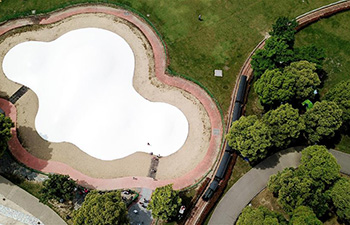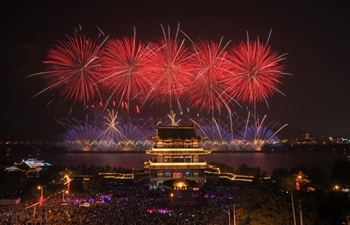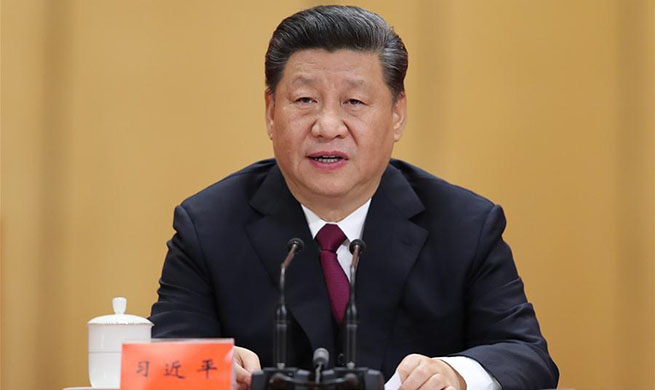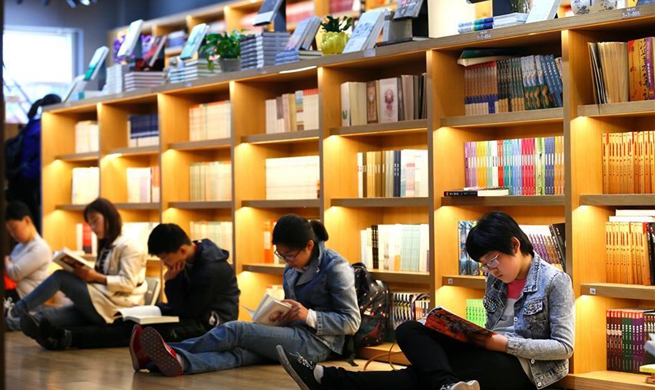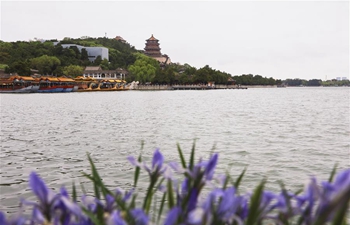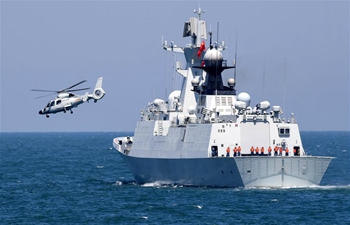SEOUL, May 3 (Xinhua) -- China provided constructive help for the ongoing peace process on the Korean Peninsula as China and South Korea are on the same page for complete denuclearization and lasting peace on the peninsula, South Korean Foreign Minister Kang Kyung-wha said Friday.
Kang told a press conference with foreign correspondents in Seoul that China had the same goal with South Korea of complete denuclearization of and peace regime establishment on the peninsula.
She noted that South Korea and China continued joint efforts for the goal while active dialogues continued between the governments of the two countries.
The South Korean top diplomat said China provided constructive help for the peninsula's peace process given the exchange of views between leaders of China and the Democratic People's Republic of Korea (DPRK) and the senior-level exchanges between the two sides.
"The peace process has advanced although the second summit between the DPRK leader and U.S. President Donald Trump ended with no agreement in late February in the Vietnamese capital of Hanoi," Kang noted.
Kang said Trump expressed willingness to meet again with DPRK top leader Kim Jong Un, who showed intention to keep up dialogue with the United States.
"We remain optimistic that at some point, they'll return to the dialogue," she noted.
Kang said her country was making every effort, mobilizing all of its diplomatic sources, to help resume negotiations between Pyongyang and Washington, noting that the effort was based on the South Korea-U.S. alliance and close consultations with neighboring countries.
She repeatedly said South Korea's goal is the nuclear-free Korean Peninsula, noting that DPRK top leader Kim also repeated his commitment to the peninsula's complete denuclearization.
"There has to be a comprehensive roadmap" for the denuclearization, said Kang expressing her anticipation for the DPRK and the United States to draw it up in the dialogue table.
Guaranteeing the DPRK's security should be included in the denuclearization process, said she without elaborating further.
Regarding the inter-Korean relations, the foreign minister said the ties between South Korea and the DPRK were influenced by the DPRK-U.S. relations following the Hanoi summit.
However, she noted that regular exchanges were still happening between the two Koreas through various channels such as the joint inter-Korean liaison office in the DPRK's border town of Kaesong that opened last September for the round-the-clock communications.
Kang said South Korea made efforts to "revitalize both tracks" between the two Koreas and between the DPRK and the United States, citing the scheduled visit by Stephen Biegun, U.S. special representative for DPRK affairs, to Seoul next week.
Following the Hanoi summit, South Korean President Moon Jae-in said he will push for his fourth summit with the DPRK leader "in any place and formality at the North Korea (DPRK)'s convenience."
Moon received the message from Trump, who asked the South Korean president to convey it to the DPRK leader, during their Washington summit last month.


